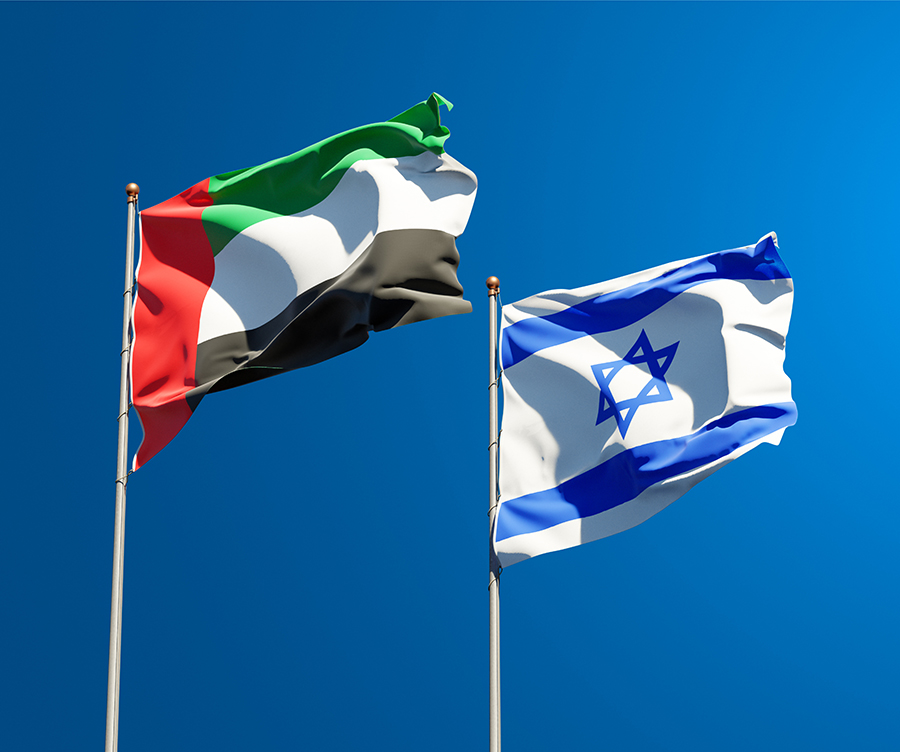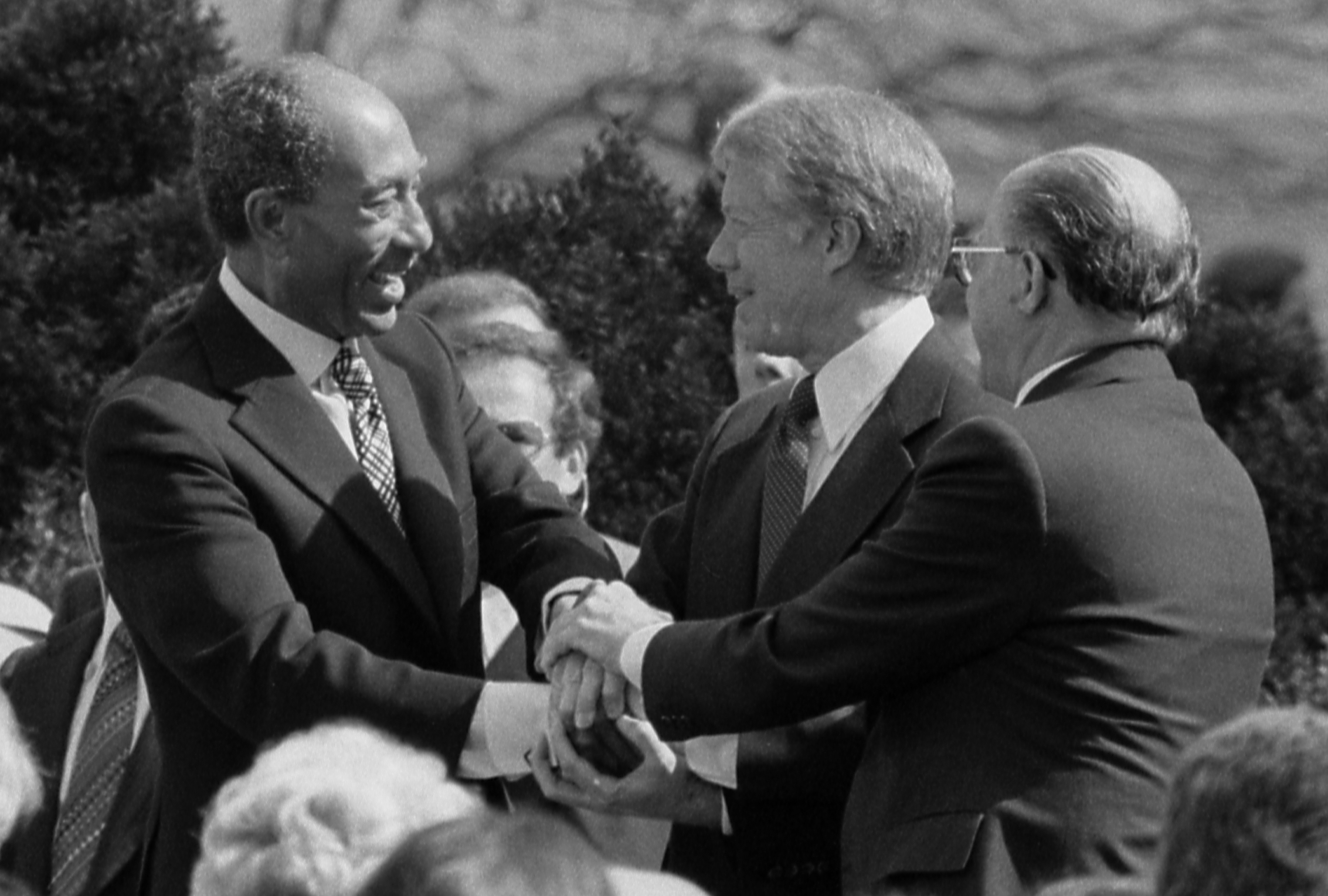Abraham Accords: The Historic Middle East Peace Agreement Transforming Regional Relations
Abraham Accords: The Historic Middle East Peace Agreement Transforming Regional Relations
Table of Contents

What Are the Abraham Accords?
The Abraham Accords represent a groundbreaking series of peace agreements that established diplomatic normalization between Israel and several Arab nations, fundamentally reshaping Middle Eastern geopolitics. Signed on September 15, 2020, at the White House, these historic accords marked the first Arab-Israeli normalization agreements since the Israel-Jordan peace treaty in 1994.
Named after Abraham, the shared patriarch of Judaism, Christianity, and Islam, the accords emphasize the common heritage of the Abrahamic religions and promote mutual understanding, tolerance, and peaceful coexistence. The agreement was mediated by the United States under President Donald Trump's administration, with significant diplomatic efforts led by senior advisor Jared Kushner.

Which Countries Signed the Abraham Accords?
The Abraham Accords initially included four primary signatories:
Original Signatories (September 2020)
- United Arab Emirates (UAE) - First Arab nation to normalize relations with Israel since 1994
- Bahrain - Followed shortly after the UAE announcement
- Israel - Central party to all normalization agreements
- United States - Mediating party and witness to the agreements
Subsequent Signatories
- Sudan (January 2021) - Joined in exchange for removal from the U.S. terrorism sponsor list
- Morocco (December 2020) - Normalization came with U.S. recognition of Moroccan sovereignty over Western Sahara
These agreements built upon earlier Arab-Israeli peace treaties with Egypt (1979) and Jordan (1994), expanding the circle of Arab nations maintaining diplomatic relations with Israel.

Historical Significance and Background
Breaking Decades of Diplomatic Isolation
The Abraham Accords emerged against the backdrop of evolving Middle Eastern geopolitics, particularly growing concerns about Iranian influence in the region. For decades, most Arab nations maintained a policy of non-recognition toward Israel, conditioning normalization on resolution of the Palestinian conflict.
However, by the late 2010s, informal cooperation between Israel and Gulf states had been developing, driven by shared security concerns about Iran's nuclear program and regional activities. This unofficial partnership included intelligence sharing and limited military cooperation, setting the stage for formal diplomatic relations.
The Trump Administration's Diplomatic Strategy
The breakthrough came in 2020 when UAE Ambassador Yousef Al Otaiba proposed that Israel suspend its planned annexation of West Bank territories in exchange for normalization. This offer, mediated through the Trump administration, resulted in the historic August 13, 2020 announcement of the Israel-UAE agreement.
Within hours of this announcement, Bahrain expressed interest in joining, culminating in the elaborate White House signing ceremony on September 15, 2020, designed to showcase the diplomatic achievement on a global stage.
Economic Impact and Trade Benefits
Unprecedented Economic Growth
The Abraham Accords have generated substantial economic benefits, with trade between signatory nations experiencing exponential growth. According to economic projections, the agreements could create up to 4 million new jobs and generate $1 trillion in economic activity over the next decade.
Key Economic Developments
- Israel-UAE Trade: Bilateral trade exceeded $1.6 billion in the first half of 2024, representing significant growth from pre-normalization levels
- Free Trade Agreements: Israel and the UAE signed a comprehensive free trade pact in 2022, eliminating tariffs on 95% of traded goods
- Investment Flows: UAE businesses have acquired stakes in Israeli companies, including sports teams, ports, and airlines
- Technology Transfer: Enhanced cooperation in artificial intelligence, defense technology, and clean energy initiatives

Regional Infrastructure Projects
The accords have facilitated major infrastructure initiatives, including a proposed solar energy project in Jordan that would provide electricity to Israel while Israel supplies desalinated water to Jordan, demonstrating the multilateral benefits of normalization.
Challenges and Future Opportunities
Public Opinion and Regional Tensions
Despite governmental support, public opinion in many Arab countries remains mixed regarding normalization with Israel. The ongoing Israeli-Palestinian conflict continues to influence regional sentiment, with some Arab populations viewing the accords as premature without resolution of Palestinian statehood issues.
The October 2023 Gaza conflict temporarily strained some relationships, with Bahrain recalling its ambassador to Israel, though formal diplomatic ties remain intact.
Expansion Prospects
The Biden administration has continued supporting the Abraham Accords while emphasizing the need for progress on Palestinian issues. Saudi Arabia remains the most significant potential addition to the accords, though Saudi officials have indicated that Palestinian progress remains a prerequisite for normalization.
Other countries mentioned as potential future signatories include Oman, which has maintained dialogue with Israel, and several African and Asian nations with Muslim-majority populations.
Frequently Asked Questions
Why are they called the Abraham Accords?
The name honors Abraham (Ibrahim in Arabic), the shared patriarch of Judaism, Christianity, and Islam. This naming emphasizes the common heritage and spiritual connections between the Abrahamic faiths, promoting interfaith dialogue and understanding.
What makes the Abraham Accords different from previous peace agreements?
Unlike previous Arab-Israeli agreements that primarily addressed territorial disputes, the Abraham Accords focus on comprehensive normalization including trade, tourism, direct flights, and cultural exchanges. They also don't require prior resolution of the Palestinian conflict.
How have the Abraham Accords affected the Palestinian situation?
The accords have generated controversy as they bypass traditional Arab League positions linking normalization to Palestinian statehood. While supporters argue they create new dynamics for peace, critics worry they reduce Arab leverage for Palestinian rights.
What is the current status of the Abraham Accords in 2025?
The accords remain active with continued economic and diplomatic cooperation between signatory nations. Despite regional tensions from the Gaza conflict, formal diplomatic relations have been maintained, and there are ongoing discussions about potential expansion to additional countries.
Share This Article
Found this article helpful? Share it with others to spread awareness about the Abraham Accords and their impact on Middle Eastern peace and prosperity.
